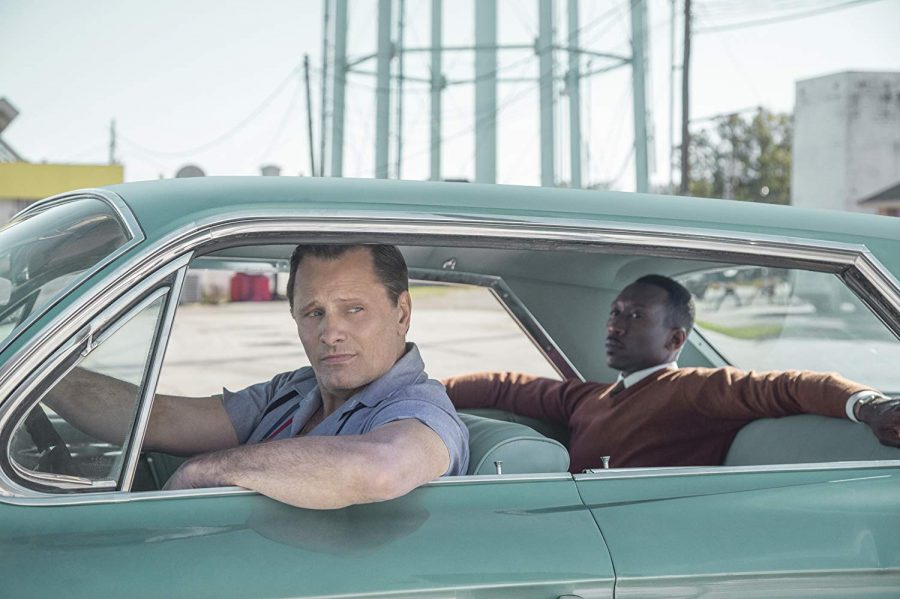‘Green Book’ isn’t racist, it just doesn’t understand racism
It’s been four years since the Oscars were accused of being “so white.” A lot has happened in those four years, and it’s safe to say the Academy has come a long way since then. Minorities dominated several of the major categories last year, and this year, three of the eight Best Picture nominees directly relate to themes of race and discrimination.
But one of those three is not like the others. Unlike “BlacKkKlansman” and “Black Panther,” which have been universally lauded for their progressive stances on race in America, “Green Book” has garnered a considerable amount of backlash for its alleged historical inaccuracies and white savior complex.
Directed by Peter Farrelly, “Green Book” is based on a true story and takes place in the early 1960s. It focuses on Tony “Lip” Vallelonga (Viggo Mortensen), a racist middle-class bouncer with Italian roots, and his budding friendship with Dr. Don Shirley (Mahershala Ali), an accomplished black pianist. After being laid off, Tony becomes Don’s driver and bodyguard as he embarks on a two-month long tour of the deep south.
There’s no denying “Green Book” is an enjoyable, well-made film, but the aforementioned “BlacKkKlansman” and “Black Panther” succeed in ways “Green Book” simply cannot. One of the things that makes the former two so stunning is that they are films about black people made by black people — and therefore, they actually understand the complex issues they tackle. “Green Book,” on the other hand, is a film about racism, backed by a team of all white men and primarily framed from a white protagonist’s perspective.
I firmly believe “Green Book” was made with only the best of intentions, but that doesn’t mean those good intentions necessarily translate onto the big screen as smoothly as they should. Despite some critics’ claims, “Green Book” is not racist. Rather, it doesn’t know how to approach the issues of race it tries so desperately to address — because it’s being handled by a bunch of white men who have never experienced what the real-life Don Shirley experienced as a black man in 1960s America.
One of these oblivious men is Nick Vallelonga, son of the real-life Tony and co-writer of the film. Shortly after “Green Book’s” release, Vallelonga came under fire for a controversial tweet in which he endorsed Donald Trump’s claim that American Muslims were cheering after the Twin Towers fell on 9/11. The ensuing backlash prompted Vallelonga to issue a public apology and delete his Twitter account.
And then there was Mortensen’s use of the N-word during a panel promoting the film’s release. Mortensen immediately apologized for using the word, which, to be fair, was said in a statement expressing how the racial slur is no longer socially accepted. But, needless to say, this just added fuel to the fire in the great “Green Book” scandal.
The real nail in “Green Book’s” coffin, though, came with the real-life Shirley family’s condemnation of the film, who called it “a symphony of lies.” Incidentally, one of the conflicts mentioned throughout the film, but never elaborated on, is Don’s estranged relationship with his family, particularly his brother.
The family further accused the film of being produced without their consent and consisting of historical inaccuracies — much like fellow Best Picture nominee “Bohemian Rhapsody.” In fact, they alleged that the real-life Don and Tony maintained a strictly professional relationship and were never friends. Nick Vallelonga, however, maintains that his father and Don did remain friends, and that Don specifically asked him not to speak to anyone else about what went in the film before his death in 2013.
Regardless of whether any of this is true, an Oscar sweep for “Green Book” — which is up for five awards, including Best Picture — would essentially be celebrating the social ignorance of its creators. The fact that a comic book film does a better job furthering the conversation about race in America than a film specifically about America’s racist history speaks to the effectiveness of “Green Book.”
The film succeeds at almost everything it attempts to accomplish — except successfully understanding America’s race issue. Because until we stop seeing racism solely through a white lens, like we do in “Green Book,” we’ll never be able to fully understand the issue, nor will we be able to fix it.









pulse • Feb 13, 2019 at 3:54 PM
yawn…same story – different day – from the offended industry